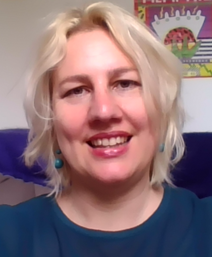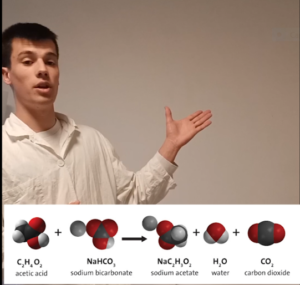

Dr Alexandra Reynolds is Associate Professor of Applied Linguistics from the University of Bordeaux.
She teaches English and Linguistics and does research in the same field. She is head of Internationalisation at Home Virtual Exchange initiatives for the faculty of Science.
She talks to UNICollaboration about the status of Virtual Exchange in her institution.
“It’s a challenge but it’s worth it. If you’re feeling blue about it, remember it’s really great for the students and a very enriching experience all round”
Tell us where it all began Alexandra?
“We started to use VE about 5-6 years ago, for years 1-3 and up to Masters level. It began with an initiative called New Deal. This project allowed us, with some funds, to experiment with VE, and explore how we could integrate that into the syllabus. This ‘kick-off’ period lasted about 3 years. As a result, now we have approximately 20 VEs and internationalisation at home programmes which are all successfully integrated into the syllabus.
“At the moment at Bordeaux, we are working with a Climate Justice VE for the next three years with the Sharing Perspectives Foundation
“We have 20 students undertaking this VE and the same number are doing the facilitation training offered by them too. I recruited PhD students to do this training as part of their obligatory (100h) training hours for their PhD. Hopefully we can continue offering integrated VEs in the future, and we will have enough facilitators to make this happen.
“The important thing for us was that these virtual exchanges would be credited using European ECTS to enable students to get grades that count towards their final degree.”
Accreditation is something that comes up repeatedly during our Training here at UNICollaboration and it seems to be a real challenge. Is it?
“I have to say that this aspect is not easy and it took a few years to establish. So first of all, the institution has to accept that a course is valid and worth being part of the syllabus. The Heads of departments all have to agree to this. This means there is much negotiation from the outset.
“Then we needed to define the work load and decide how much each part is worth and from there, how many credits it was worth. The next step included defining the evaluations. We have a strict rule of multiple continuous assessment grades for one course to encourage students to succeed. All that has to be decided and designed.
“You need to present the objectives and the outcomes. We had to write up this document which was then read and approved by a whole team. And in order not to create extra costs, we needed to make it so one course will replace another one of the same value.”
That sounds all very complicated Alexandra, so how much support were you getting within your institution and what challenges did you face?
“A small group of people were initially interested at the time, so in that sense, we had people looking for ways to integrate telecollaboration already, but in an unofficial way.
“We began very small, I’d say, with 1 or 2 VEs and we increased them gradually each year. Initially, support came from the New Deal project I mentioned earlier, and myself, encouraging everyone to get on board. It wasn’t smooth.
“The structure of the syllabus is quite set-in-stone, and integrating other elements isn’t straightforward. It creates competition, which is something the French system is not used to as that is more of an American model. It meant students could choose courses and the notion of having options was a very new concept to them within the French system. It did create conflict between programmes. But now, we have support from International Relations for example and other departments.”
Is it just the language department running the VEs?

“They are run by the language department for the science faculty, which is where I work. So, it’s English for specific purposes such as English for chemistry or geology.
They are very science-based and revolve around these disciplines.”
Are they popular?
“Yes, they certainly are. Some even have waiting lists. Especially the ones we have with Stanford which is very prestigious of course. But we also collaborate with Cincinnati and they are very popular, with our PhD students and undergraduates alike.
It sounds like you have concrete and ongoing partnerships, but this is another sticking point for many academics – how to find a partner?
“We were lucky, I have to say, because we have staff who have research affiliations and these enabled us to get started. It all began with a small network of researchers and friends and grew from there.
“I would also like to mention the ENLIGHT consortium of 7 universities, as this gave us opportunities to meet at conferences. From there we created the VE called ENLIVE.
“Along with Stanford and Cincinnati, we now have strong partnerships with Göttingen, Bratislava, Padova and more that no doubt that I have forgotten to mention!”
What advice would you give to other academics wanting to do this?
“Decide what you would like to do and who you would like to do it with. Construct your own project first, and after you’ve built your mind map, then reach out. It’s advisable to have a concrete starting point.
“Nothing replaces the impact of face-to-face meetings and the importance of personal connections though.”
What about the role of Training in Virtual Exchange and importance of this as a base?
“Many of our staff and facilitators have done the training with UNICollaboration and that certainly gave us extra support and confidence. Setting out alone is a challenge without training. It’s nothing like traditional teaching and you need skills in conflict and mediation to do this type of collaborative teaching and learning.
“Currently we encourage all our practitioners to undertake some training.”
Can you explain the value added through integrating virtual exchange into your courses?
“What I’m going to say is not new, but meeting people from outside your institution, and meeting other researchers is so interesting and valuable. Seeing how others structure and grade their courses and understanding their criteria opens your mind.
And those who facilitate have found it to be a very different experience from what they do in the class. They appreciate having students from outside Bordeaux in their group. Students always love interacting with other students and even those outside of their own disciplines.
